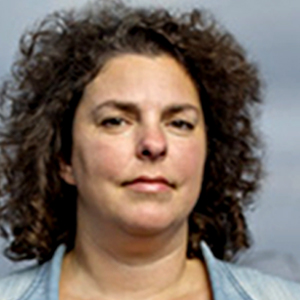
Tara is managing director for nuclear policy and nonproliferation at Outrider Foundation. She has more than a decade of experience in the national security field, managing complex government programs and supervising teams of talented researchers at both the US State and Treasury departments. Tara holds a PhD in plasma physics and has worked for the US Navy on issues related to weapons of mass destruction (WMDs) and for the US State Department on nonproliferation and arms control issues.
I am most excited in working on projects that… help grow public understanding of nuclear weapons issues and that galvanize the public into action.
I am looking for partners that can help me with… projects that communicate nuclear weapons issues to a non-expert audience.
A moment when I felt most inspired in my work was… leading a short course for adults on nuclear weapons issues.
Innovations in my field that I am most excited to work on… involve virtual reality/augmented reality and other types of learning experiences.
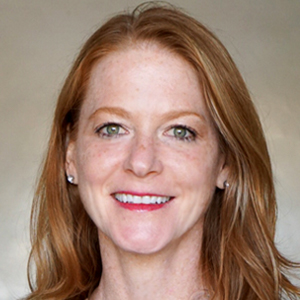
Cyndi is a curator of art, words, people, and experiences. She is the executive director of Creative Santa Fe, a nonprofit organization dedicated to using collaboration and the power of the arts to reframe critical issues and drive positive change. She also serves on the advisory board for the National Parks Arts Foundation and recently co-chaired Santa Fe Mayor Alan Webber’s task force to catalyze job creation. In 2014, she chaired Mayor Javier Gonzales’ housing and community development transition team and was honored by Albuquerque Business First as one of 40 Under Forty awardees statewide. Cyndi held the position of visual arts director and curator of the Center for Contemporary Arts, Santa Fe, before founding gallery and art advisory firm LAUNCHPROJECTS in 2008. Prior to that she was the director of EVO Gallery. Cyndi holds an MA in curatorial studies and arts administration from Skidmore College in conjunction with the Tang Museum, a BA in Latin American studies from Tulane University, and studied at the Universidad Ibero Americana in Mexico City. She has lived in Paris, Mexico City, Austin, and New Orleans.
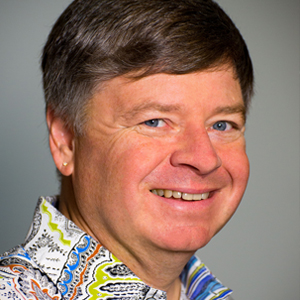
Mark Graham is director of the Wayback Machine at the Internet Archive, where he works to help make the Web more useful and reliable. Previously, Mark was senior vice president with NBC News Digital where he managed several business units including Stringwire, a live mobile video platform for collaborative citizen reporting. Mark also served as senior vice president of technology at iVillage; cofounded Rojo Networks, one of the first large-scale feed aggregators and personalized blog readers; and in the early days of the internet led The WELL’s effort to build the first web-based interface for online forums. He also helped bring the pre-web internet to millions of people by running AOL’s Gopher project as part of their Internet Center.
Additionally, Mark managed technology for the pioneering US-Soviet Sovam Teleport email service and cofounded and lead PeaceNet, one of the first online communities for progressive social change, and later IGC.org, one of the world’s first ISPs. He also cofounded the global NGO, APC.org. Mark’s early training and experience with computer-mediated communications was acquired while he served in the U.S. Air Force, spending more than three years working at the Air Force Data Services Center at the Pentagon. While still in uniform, Mark cofounded the Nuclear Weapons Freeze Campaign and later compiled a list of peace groups that was published as the Peace Resource Book.
I am most excited to work on projects that… can help policymakers, and the general public, better understand risks related to the development and use of various weapon systems, especially nuclear weapons.
I am looking for partners that can help me… advance my efforts to improve the Wayback Machine, make the Web more useful and reliable, and generally promote the mission of universal access to all knowledge.
A moment when I felt most inspired in my work was… when I was able to use the Wayback Machine to help Google refute Donald Trump’s false claim that Google had not promoted the 2018 State of the Union address on the front page of its website.
Innovations in my field that I am most excited to work on… include archiving news and social media sources worldwide to help researchers and journalists track, understand, and report about the development and propagation of ideas, including misinformation and disinformation campaigns, across multiple platforms.
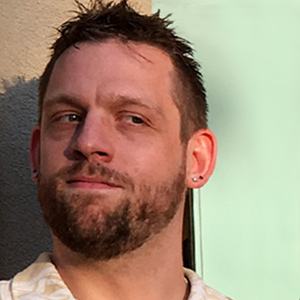
Martin is a PhD student in anthropology at the University of New Mexico. His research focuses on the ways in which we create and circulate meaning about, around, and through nuclear weapons. His research interests include how people interact with one another and artifacts to make meaning about nuclear weapons in official heritage sites (like museums); the articulations and imbrications of nuclear weapons with State projects of nationalism, colonialism, and international power; and the ways in which communities of experts perform expertise and construct knowledge through interacting with one another and the public in both virtual (Twitter) and meatspace places. A native of Louisiana, Martin holds a BA in political science and an MA in anthropology from Louisiana State University.
I am most excited to work on projects that… aim to fundamentally alter the ways in which we think about peace, security, and risk.
I am looking for partners that can help me… identify, develop, and enact effective ways to productively engage with the broad public on nuclear weapon and peace issues.
A moment when I felt most inspired in my work was… when I was learning the history of anti-nuclear weapons movements and their impacts on state policies and behaviors.
Innovations in my field that I am most excited to work on… include the growth of the humanitarian initiative on nuclear weapons, as well as developing and applying anthropological concepts and practices to nuclear weapon and peace issues.
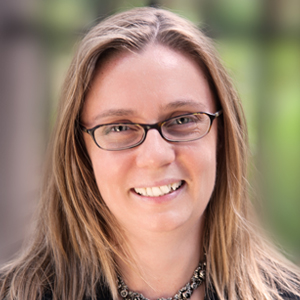
Jewlya is a facilitator, advisor, and researcher who works with leaders dedicated to making a difference in the world by solving complex problems. She began this work 15 years ago managing a project to transform public systems in response to the Columbine school shooting, and then founded an organization dedicated to supporting systemic change—Spark Policy Institute. After transitioning Spark to new leadership, she’s now working directly with leaders throughout the United States and around the world on issues that affect us all, from climate change and nuclear security to building healthy communities and ecosystems. Jewlya has served as a facilitator, evaluator, and strategy partner to major U.S. and international initiatives, including the National Science Foundation’s EarthCube Initiative (building cyber infrastructure for the 21st century), ClimateWorks’ Sustainable Finance Initiative, the Ford Foundation and Atlantic Philanthropies’ Narrative Initiative (dedicated to building fairer, more inclusive societies), and the BUILD Health Challenge (creating a new national norm and model for achieving community health), among others.
I am most excited in working on projects that… engage partners from multiple sectors and disciplines in working together to find and test innovative solutions to complex systemic problems.
I am looking for partners that can help me… apply a systems lens to finding ways to move the needle on nuclear security in the U.S. and globally.
A moment when I felt most inspired in my work was… working with leaders who are bold enough to tackle the biggest and messiest problems and confident enough to admit uncertainty about how to solve them.
Innovations in my field that I am most excited to work on… involve changing the broader social narratives that underly many of the beliefs we hold about how government and society should function.
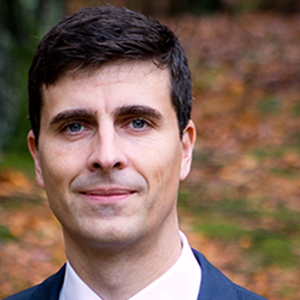
Franz is a systems engineer serving as chief scientist at Hala Systems, where he leads development of technology designed to save civilian lives in war zones. Previously, he worked for nearly 15 years at MIT Lincoln Laboratory on an array of national security projects. Franz has been a part of teams that have designed, analyzed, and developed a wide range of complex systems related to early warning, satellites, alternative energy, border protection, and even missile defense. He holds a PhD from Stanford University and a BS from MIT, both in aerospace engineering. His motivation comes from being a father of five children—he believes his children should live in a better world, and every other child should have the same opportunities his do.
I am most excited to work on projects that… save and improve the lives of suffering or at-risk civilians, especially children.
I am looking for partners that can help me… get the resources together to develop life-changing technology and access to deploying those solutions where they are needed most.
A moment when I felt most inspired in my work was… speaking in large group settings and seeing the audience become excited by a new paradigm, where viewing problems from a new “system” perspective led them to realize new solutions and possibilities.
Innovations in my field that I am most excited to work on… integrate distributed sensor-controller-actuator systems that operate robustly in austere conditions.







